Written for the January/February 2011 Film Comment. — J.R.
Chef-d’oeuvre?
(Luc Moullet, France)
Although ostensibly a short essay inquiring how masterpieces are identified and proclaimed in several art forms (with various apt comparisons and wry asides), this is ultimately a 13-minute defense of the short film itself — the form in which Moullet himself has created the greatest number of masterpieces (and about which he has written often as a critic, most recently in the French magazine Bref). The finale is a presentation of Méliès’ most famous short, Le Voyage dans la lune (1902), with Moullet’s own brilliant audio commentary.—Jonathan Rosenbaum Read more
Written for the Olive Films Blu-Ray in 2016. — J.R.
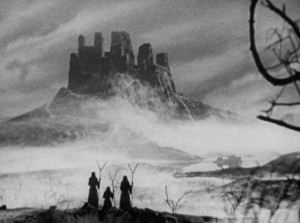
[Orson Welles’s] desire to transcend the barriers separating the classics, the avant-garde, and popular culture remains, I believe, his most enduring legacy.
— Michael Anderegg, Orson Welles, Shakespeare and Popular Culture (1999)
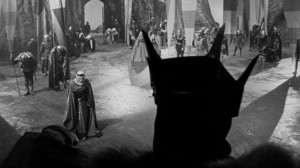
It seems probable that no American film director ever rattled the American mainstream more than Orson Welles, and none of his features rattled that mainstream more than his two versions of Macbeth, made successively out of the same material he shot in 1947, and released successively in the U.S. in 1948 and 1950. Welles’ fifth completed feature, it was the first of many that would come out in more than one version, and the first that decisively shifted his public status, against his own wishes, from that of commercial studio director to that of arthouse auteur — a profile that would be deviated from only by Touch of Evil a decade later, the only other studio feature he would ever make.
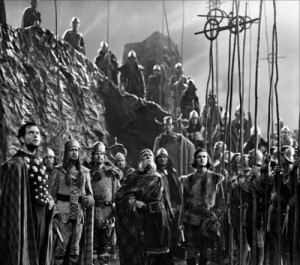
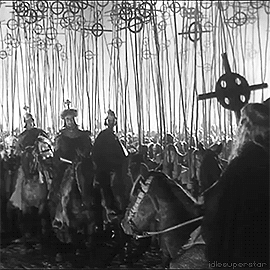
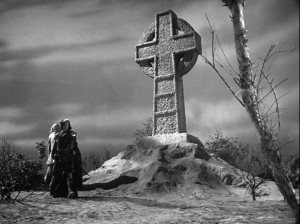
Welles’ approach to the material is wildly neo-primitive and so expressionistic that one can never be entirely sure whether the action is taking place in interiors or exteriors; the same ambiguity persists in the spoken text, where off-screen internal monologue and on-screen external speech often seem only a breath apart. Read more





